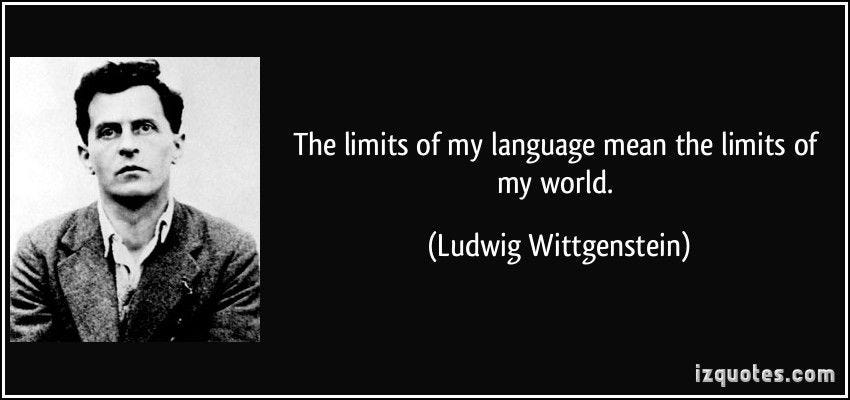The English philosopher P.F. Strawson (1919–2006) helped to define the notion of “descriptive metaphysics” and also defend it as an acceptable and feasible philosophical position.
There have been many examples of what could have been called descriptive philosophy — if not actually descriptive metaphysics. Because descriptive metaphysics is precisely that — descriptive; so it followed (to Strawson) that it’s not the philosopher’s “task to modify or correct the structure of commonplace thinking”. Commonplace thinking would be left untouched by Strawson precisely because it’s related to what he saw as the “conceptual structure” or “central core [of] human thinking”. Commonplace thinking simply embodies (or expresses) Strawson’s “conceptual structure”. And because that’s the case, such a logically fundamental, universal and a-historical basis to commonplace thinking can’t be changed, modified or corrected even if a philosopher wanted to do such a thing. Such a philosopher would be attempting to tamper with the fundamental forms and logical features of minds.
It’s also been said that ordinary language philosophy was a descriptive kind of philosophy (if not actually metaphysical in nature). In this case, rather than leaving our commonplace thinking alone, ordinary-language philosophers left our “commonplace idioms” well alone.

Ludwig Wittgenstein (1889–1951) put the basic position of descriptive philosophy in his usual radical way. He believed that such a philosophy basically “leaves everything as it is”. In Wittgenstein’s own version of descriptive philosophy, the only task such a philosophy had (at least according to the Tractatus and the Wittgenstein of the first half of the 1920s) is to analyse the propositions of the natural sciences. And even then only to analyse and describe such propositions, rather than modify or correct them. Indeed it would be rather unbecoming of the Wittgensteinian philosopher to correct, modify or alter the propositions of the natural sciences. This was primarily the case in terms of scientific propositions because such things would already contain correct and acceptable “logical forms”. That is, they abided by the rules stipulated in the Tractatus.
Because such a philosophy would only be descriptive (or analytical), then the Wittgensteinian philosopher was left with virtually nothing to do. There was, however, still a basically peripheral role to play: the analysis and criticism of all “metaphysical propositions”.
We’re left with the seemingly contradictory conclusion that otherwise descriptive (or Wittgensteinian) philosophers must become (Strawsonian) “revisionary metaphysicians” — if only when modifying, correcting or rejecting the claims expressed by metaphysicians or in metaphysical propositions. That is, they criticised, etc. the metaphysical propositions deemed “grammatically correct”, though “logically false”.
When it came to the propositions of science, Wittgensteinians were simply pen-pushers. When criticising metaphysical propositions, they too became metaphysicians — revisionary metaphysicians who indulged in (if only in these cases) revisionary metaphysics. That is, a metaphysics that actually wants to change the way we talk and think about the world. However, this metaphysical revision couldn’t be applied to Strawson’s “structure of commonplace thinking” (or the “commonplace idioms” of the ordinary- language philosopher). It certainly couldn’t be revisionary (according to Wittgenstein) when it came to the analysis and description of scientific propositions.
In the early days, Wittgenstein wasn’t really concerned with leaving commonplace thinking (or idioms) well alone. However, Wittgensteinian descriptive philosophy indeed left “everything as it is” when it came to the propositions of science. That said, Wittgenstein did come to believe in leaving ordinary language (or commonplace thinking) well alone. Indeed, at this later stage, Wittgenstein did believe that all philosophy (not only of the descriptive kind) must in the end be a philosophy which leaves everything as it is.
If such a philosophy (along with all the other versions of descriptive philosophy) literally leaves everything as it is, then this obvious question must be asked:
What is the point of this descriptive (or deflationary) philosophy? What would one actually do (as a philosopher) in this Wittgensteinian scheme?
Not only does this extremely radical stance leave philosophers with almost nothing to do; what it argues philosophers can do can also be done by logicians, mathematicians and scientists; along with linguists or even lexicographers. Such a radical (or deflationary) attitude toward philosophy must surely be philosophically suspect, flawed or even illogical in some — or many — ways.
It’s therefore relevant to say here that few analytic philosophers have certainly not accepted the work of the later Wittgenstein in its radical fullness. Some philosophers (e.g., Thomas Nagel, Colin McGinn and Michael Dummett) have even claimed that the conclusions of the late Wittgenstein are so radical and extreme that any attempts to act on — or apply — them would result in destructive and negative consequences for the whole of philosophy. This was seen to be the case to such an extreme that philosophers saw the later Wittgenstein as they saw the “usual suspects” of Continental philosophy (i.e., with their equally radical notions of relativism, historicism, radical contingency, anti-rationalism, anti-science and so on). The consequences of such views were seen as equally destructive and negative. Indeed such destructive consequences and negative beliefs would and have filtered out into the larger communities outside (sometimes well outside) the tiny communities of analytic and Continental philosophers.
In conclusion, it seems strange that a philosophy which argued that all correct philosophy should leave everything as it is should also be one that could have had (at least in principle) a destructive and negative impact on philosophy and the wider world. Surely you’d have thought that only revisionary philosophers (such as, say, A.N. Whitehead, Martin Heidegger and Derrida and their radical restructuring of the entire history of Western metaphysics) would have had a radical impact on philosophy and the wider world.
References
Haack, Susan. (1979) ‘Descriptive and Revisionary Metaphysics’
Strawson, P.F. (1959) Individuals
Wittgenstein, L. (1922) Tractatus
— (1951/53) Philosophical Investigations










No comments:
Post a Comment